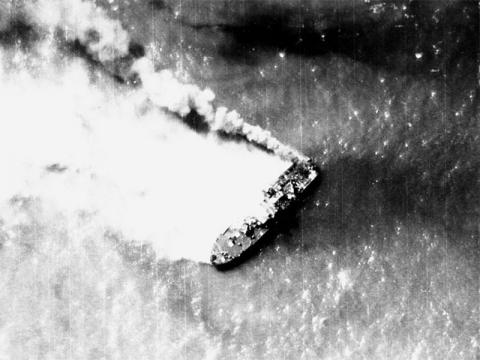Theme 1: Forces That Fueled the Vietnam War
The Vietnam War Lesson Guide

A North Vietnamese Shantou-class gunboat burns near Hon Ne Island, after an attack by aircraft from the U.S. Navy aircraft carrier USS Constellation, off North Vietnam's Lach Chao Estuary, August 5, 1964.
Theme Overview
Why Vietnam? What were the root causes of the war from a geopolitical perspective? From a bi-polar perspective? Through a Cold War lens? The Vietnam War is generally understood as a manifestation of post-WWII Cold War geopolitics, but lessons will examine it in the broader story of imperialism, post-colonialism, and emerging nationalism, as it played out in the complex history of Vietnam. The war was fought during a time of a vast buildup of nuclear arms, and its history cannot be understood outside of the global tensions between the U.S. and its communist enemies in the U.S.S.R. and China and an arms race that threatened to destroy the world.
Essential questions:
- Why did the US feel compelled to take over for the French in Indochina?
- What responsibilities do nations have in helping provide for a peaceful world order?
The lessons
- A Cost/Benefit Analysis of Colonialism—Students watch selected video segments from The Vietnam War and examine the impact of French colonial rule of Vietnam on both the French and the Vietnamese people. Then students will conduct a cost/benefit analysis for each country and discuss ways to find a middle ground.
Time period: 1854 - 1945Video Clips
- The 1954 Geneva Convention Accords—Students will watch selected video segments from The Vietnam War, examine important provisions in the Geneva Convention Accords and the Geneva Conference, and discuss their merits.
Time period: 1945-1954Video Clips
- The United States Becomes further Involved in South Vietnam: A Case Study—Students view selected segments from The Vietnam War and analyze how French withdrawal from Vietnam, and the pressures of the Cold War, increased America’s commitment to South Vietnam.
Time period: 1954-1956Video Clips
